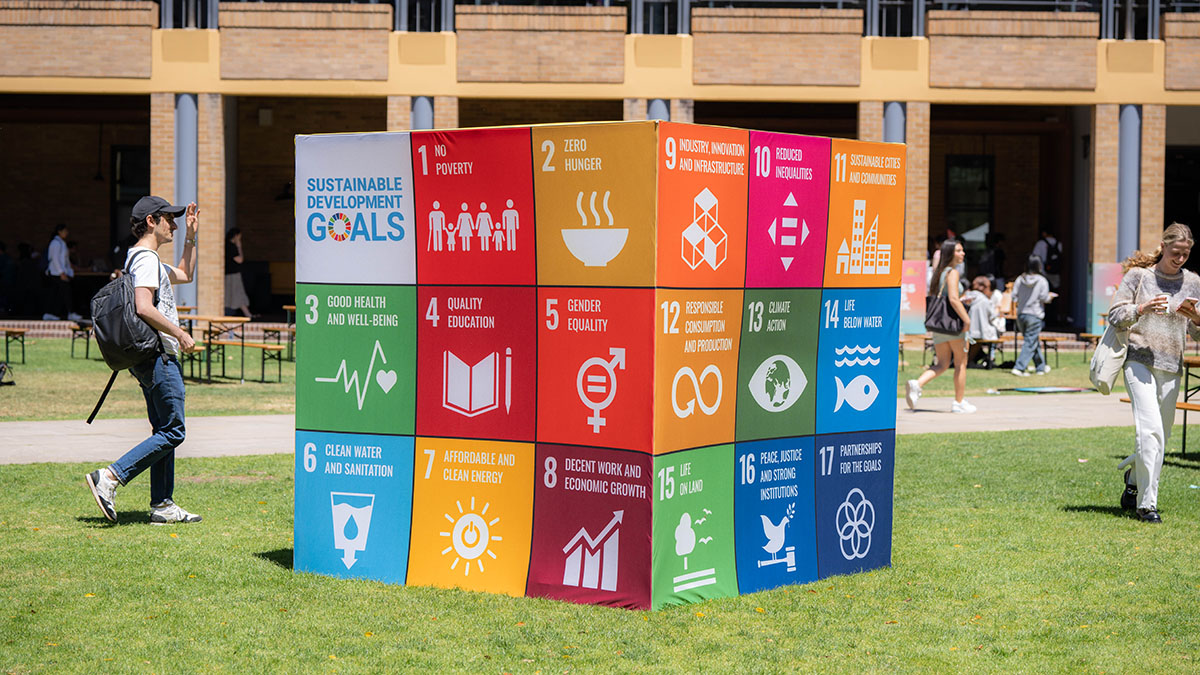
The THE Global Sustainable Development Congress in Bangkok hopes to generate tangible outcomes to help society meet the UN’s Sustainable Development Goals.
More than 30 experts and leaders from UNSW Sydney and UNSW Canberra will attend the Times Higher Education (THE) Global Sustainable Development Congress (GSDC) in Bangkok from 10–13 June 2024.
UNSW is a content partner of the GSDC and will sponsor and lead two events, one in partnership with the UN Development Coordination Office (UNDCO).
The GSDC is in its second year and will serve as a platform for advancing UN Sustainable Development Goals (SDGs) on a global scale by bringing together 3000 thought leaders to discuss solutions to the sustainability crisis.
UNSW Vice-President Societal Impact, Equity & Engagement Professor Verity Firth AM said the GSDC is an opportunity to gather experts from around the globe to explore ways to drive greater impact.
“When world leaders first adopted the 2030 Agenda for Sustainable Development 10 years ago, it was seen as an ambitious goal. While there has been some great progress, it’s clear today that the world is not on track to meet the targeted 17 SDGs by 2030,” she said.
“UNSW will be leading two events at this year’s Congress. This is testament to our commitment to research excellence and delivering real-world solutions which advance our progress towards the 2030 target.”
Discounted tickets for UNSW staff
A discount of 25 per cent is available for UNSW staff wishing to attend the GSDC in person or online. Use the code UNSW25 when purchasing your tickets to receive the discount.
Please note, the code is limited to 60 tickets and is on a first come first served basis.
Two UNSW-hosted events
UNSW will host two events during the Congress.
The roundtable, Tuesday, 11 June: Water, energy, and food goals post 2030: Can carbon be the currency to a just world?
Co-hosted by UNSW and the UN Development Coordination Office – Asia Pacific and led by UNSW Engineering’s Dr Andrew Dansie, this roundtable discusses lessons and approaches that align both water, energy and food (WEF) and carbon strategies in addressing global inequality.
Dr Dansie said, “We are delighted to be partnering with the United Nations Development Coordination Office in Asia Pacific to deliver this important roundtable discussion on water, energy and food (WEF) goals post 2030.
“A sustainable future requires aligning global CO2 emission pathways with these WEF goals. At UNSW, we see a real opportunity to address social justice and global inequality as part of this work. The University is contributing to this through innovative nature-based solutions that provide environmental, social and economic benefit. This is undertaken through a partnered approach to research and education that is undertaken in partnership and collaboration with communities.”
The workshop, Wednesday, 12 June: The last urban migration and a post-SDG agenda for cities: What do we measure and for whom?
Led by UNSW Cities Institute Director Professor Peter Poulet, this workshop will bring together practitioners, scholars and those with lived experience from across the region to draw out priorities for a post-SDG agenda for cities. It will explore key stressors through the lens of intergenerational equity, Indigenous knowledge, policy drivers and the role of measurement that matters.
Prof. Poulet said, “The Asia-Pacific region is home to almost half the world’s population so there is urgency around enabling city systems to transition at pace to respond to complex legacies of settlement, marginalisation and neglect.”
UNSW and the SDGs
The 17 SDGs are a call to action on the world’s most pressing challenges, such as ending poverty and hunger, climate change, the reduction of inequalities and more. UNSW is currently ranked equal 18th in the THE Impact Rankings, which measure university progress towards the SDGs.
About the GSDC
Challenging the usual thinking on what higher education, governments, businesses and society must do to help meet UN Sustainable Development Goals (SDGs), the Congress aims to ignite global universities and businesses to ensure their educational, research, innovation and outreach programs have clear tangible outcomes.
UNSW’s participation at the Congress is spearheaded by UNSW Institute for Global Development, which convenes substantive teams from across the University to participate in engagements that align University knowledge with contexts across the Asia Pacific.
Find out more about the Global Sustainable Development Congress and UNSW’s contributions towards progressing the SDGs on the EDI website.
- Log in to post comments
